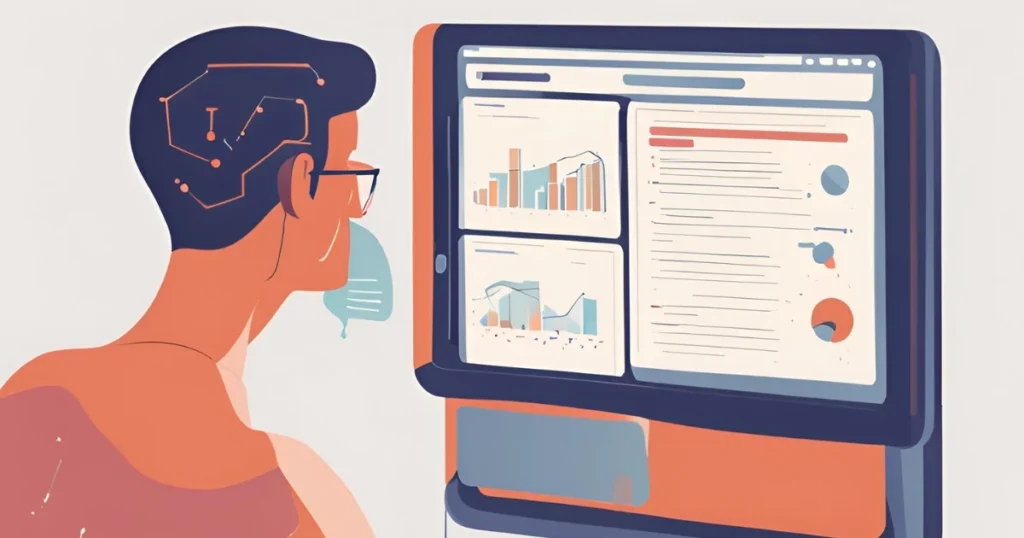Using ChatGPT can dramatically accelerate your learning process by providing personalized assistance, immediate feedback, and tailored resources.
With its advanced capabilities, ChatGPT serves as a practical learning companion that can help you understand complex concepts, practice new skills, and keep you organized in your educational journey.
In this article, we’ll explore how to leverage ChatGPT effectively to enhance your learning experience. Whether you’re a student, a professional, or just a lifelong learner, these strategies will help you learn faster and more efficiently.
Understanding Your Learning Goals
Before diving into the specifics of how to use ChatGPT, it’s essential to clarify what you want to achieve. Setting clear learning objectives helps tailor your interactions with ChatGPT, ensuring you get the most relevant information.
- Identify Specific Topics: Are you trying to learn a new language, coding, or perhaps a new subject in school?
- Set SMART Goals: Ensure your goals are Specific, Measurable, Achievable, Relevant, and Time-bound. For instance, “I want to learn basic Spanish vocabulary in two weeks.”
Leveraging ChatGPT for Concept Explanation
One of the most powerful features of ChatGPT is its ability to explain complex topics in simple terms. This is particularly useful when you’re grappling with challenging subjects.

- Ask for Simplified Explanations: You might say, “Can you explain the concept of machine learning in simple terms?” This prompt will yield clear, digestible information.
- Break Down Concepts: Use iterative questioning to dissect complex ideas further. For example, “Can you explain how neural networks work in more detail?”
Creating Personalized Learning Plans
ChatGPT can help you devise a structured study plan tailored to your learning style.

- Develop a Study Plan: Ask ChatGPT, “Create a 4-week learning plan for mastering Python.” It can suggest daily tasks and milestones to keep you on track.
- Focus on High-Yield Elements: Implement techniques like the Pareto Principle, where you learn the 20% of content that will yield 80% of the results.
Generating Study Materials
ChatGPT excels at creating customized study materials, making your preparation more interactive and engaging.

- Create Flashcards: You can prompt, “Make flashcards for the key concepts in cellular biology.” This method aids in active recall.
- Generate Quizzes and Summaries: Request quizzes on topics you’re studying. For example, “Create a quiz about the causes of World War I.” This reinforces learning through testing.
Practicing Active Learning through Role Play
Simulating real-world scenarios can significantly enhance your understanding, especially for language learning or professional skills.

- Engage in Role Play: Use prompts like, “Let’s role-play a conversation where I am a tourist in Paris asking for directions.” This immersive method builds confidence and fluency.
- Language Practice: For language learners, ask ChatGPT to provide corrections and suggestions, enhancing your conversational skills.
Getting Feedback and Corrections
Receiving constructive feedback is crucial in any learning process, and ChatGPT can assist with that.

- Real-Time Feedback: After writing an essay or completing a practice problem, ask ChatGPT, “Can you critique my writing?” This helps identify areas for improvement.
- Correction Assistance: Use prompts like, “Please correct the grammar in this paragraph,” to refine your writing skills.
Exploring Resources and Further Reading
ChatGPT can recommend additional resources that are invaluable for deepening your understanding of a subject.
- Resource Recommendations: Ask, “What are some reputable books on digital marketing?” to gain insights on further reading.
- Verify Information: Always cross-reference the suggested materials to ensure their credibility.
Addressing Common Challenges
While ChatGPT is a powerful tool, there are challenges to be aware of.
- Watch for Misinformation: AI may sometimes provide inaccurate information. Always verify critical facts through trusted sources.
- Avoid Overreliance: Use ChatGPT as a supplementary resource rather than your sole learning tool. Engage in other forms of learning, like reading textbooks and participating in discussions.
Advanced Techniques for Mastery
To truly master a subject, consider utilizing advanced learning methods that ChatGPT can facilitate.
- Worked Examples: Prompt ChatGPT for detailed worked examples. For instance, “Can you solve this calculus problem step by step?” This aids in understanding the process behind problem-solving.
- Case Studies: Use ChatGPT to discuss real-life applications of your studies. For example, in medicine, simulated patient case studies are used to develop critical thinking skills.
Conclusion
Incorporating ChatGPT into your learning routine can significantly boost your ability to grasp new concepts and enhance retention.
By leveraging its capabilities—from generating study materials to providing instant feedback—you can tailor your educational experience to meet your specific needs and goals.





